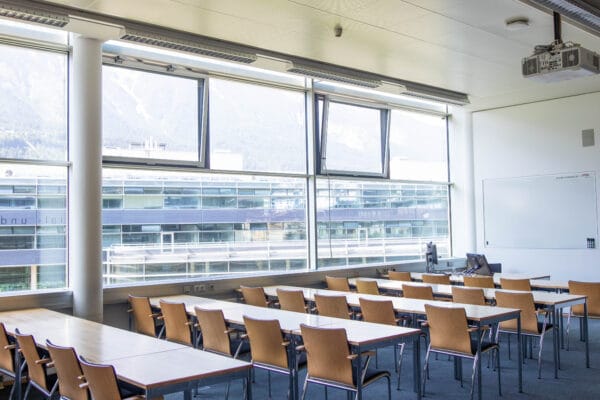
NAME:
MCI - SR 303
BUILDING:
Management Center Innsbruck
FLOOR:
3
TYPE:
Seminar Room
CAPACITY:
54
ACCESS:
Only Participants
EQUIPMENT:
Beamer, Handicapped Accessible, PC, Sound System, Whiteboard, WLAN (Eduroam), Microphones
This presentation explores the evolving landscape of digitally-enabled uplands research, proposing the potential development of principles to guide responsible and context-sensitive approaches. A systematic literature review highlights how digital technologies—ranging from GIS and remote sensing to machine learning and sensor networks—are increasingly shaping uplands research. However, while these tools offer new insights into environmental dynamics, there is a need to move beyond a purely technical focus. The proposed principles emphasise interdisciplinary collaboration, ensuring that natural and social sciences inform research design. They also advocate for meaningful engagement with uplands communities, incorporating local knowledge alongside digital data to provide more holistic insights. Additionally, we highlight the importance of ethical data practices, including considerations of access, consent, and equity in the use of digital technologies. Rather than viewing digital tools as neutral or universally beneficial, this framework promotes a nuanced, justice-oriented perspective that acknowledges both opportunities and challenges. By grounding digitally-enabled uplands research within the socio-ecological realities of upland regions, these principles aim to enhance its impact, ensuring that knowledge production serves both academic and local needs. This work contributes to ongoing discussions on the role of digital technologies in mountain research and sustainable development.

We and use cookies and other tracking technologies to improve your experience on our website. We may store and/or access information on a device and process personal data, such as your IP address and browsing data, for personalised advertising and content, advertising and content measurement, audience research and services development. Additionally, we may utilize precise geolocation data and identification through device scanning.
Please note that your consent will be valid across all our subdomains. You can change or withdraw your consent at any time by clicking the “Consent Preferences” button at the bottom of your screen. We respect your choices and are committed to providing you with a transparent and secure browsing experience.